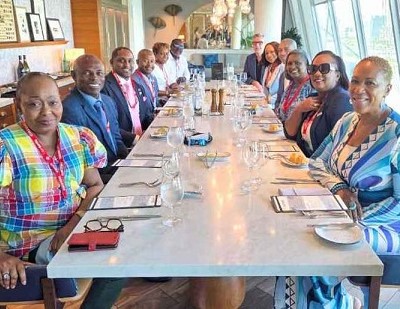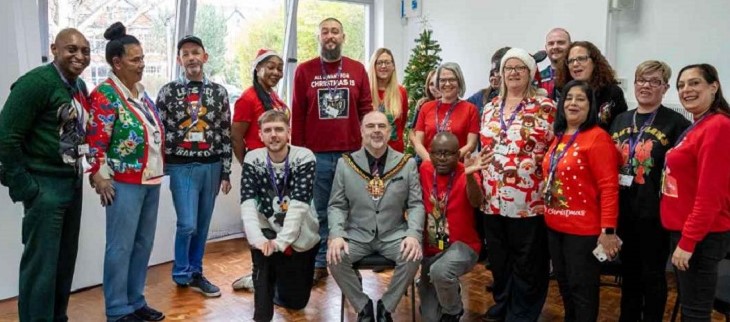A Queen Elizabeth Hospital Birmingham (QEHB) cancer patient is urging people to sign up for the pioneering 100,000 Genomes Project. Toby Knight had surgery for colorectal cancer at QEHB in January 2014, followed by chemotherapy, and is now all clear of the disease. But before his operation he gave permission for a tumour sample to be kept for research – which has now led to him signing up to the ground-breaking NHS England initiative, the first of its kind in the world.
“I signed the release form saying that the tumour could be used for research. I didn’t have a problem with that. If it could help someone else in the future that was fine,” he explained. “I then forgot about it really. I was one of the lucky ones, the surgery went well, I didn’t have a bad experience with chemotherapy and I recovered and put cancer to the back of my mind. But when I got the phone call about the 100,000 Genomes Project I came in and had a chat about the whole genetic aspect of the disease and was happy to take part.”
The project is open to patients with certain cancers as well as those with eligible rare diseases and their families and aims to sequence 100,000 whole genomes - complete sets of peoples’ genes. In the case of cancer it is hoped that comparing the genetic make-up of patients’ tumours with their healthy blood will enable doctors to learn more about the disease, leading to a better understanding of what causes it and the development of new, more personalised treatments and drugs.
Toby, aged 44, who lives in Northfield, Birmingham, is a strong advocate of the project, having lost his mother to lung cancer just 12 months before his own diagnosis and his father to leukaemia 15 years before that. “Mum had a cough and felt a bit run down and we thought it was a bit of a cold but it didn’t go away,” he said. “Eventually she was sent to hospital and after various scans and tests she was diagnosed with terminal lung cancer. Three and a half weeks later she passed away. It hit me really hard, I was struggling to deal with it and then I was diagnosed myself. In a way, that helped me cope because I had to focus on my own situation.”
Toby is now determined to help to raise awareness of the project and cancer research. “I am passionate about it,” he said. “I think there need to be more projects like this and more money for research. There’s a chance I might get sick again. Obviously I hope I don’t, but there’s always a risk, so anything that can be done to increase knowledge and improve treatment could help. But it’s not about me, it’s about supporting anything that will help us understand more about cancer and potentially identify new, safer and more effective therapies. There are no quick fixes, we know that, but the more work that’s put in the quicker we will make progress. The 100,000 Genomes Project obviously depends upon getting as many people on board as possible and I would urge anyone who is in that position to take part.”
Professor Dion Morton, a colorectal surgeon at QEHB, said: “The 100,000 Genomes Project cancer programme is a collaboration with NHS patients to ensure that advances in understanding the genetic background in cancer are developed, through the NHS, into early delivery of new diagnostic tests and new targeted therapies for patients at the earliest opportunity.”
Professor Morton is Director of the West Midlands Genomic Medicine Centre, a collaboration of 18 NHS Trusts which is delivering the 100,000 Genomes Project across the region and is led by University Hospitals Birmingham, which runs QEHB.
















